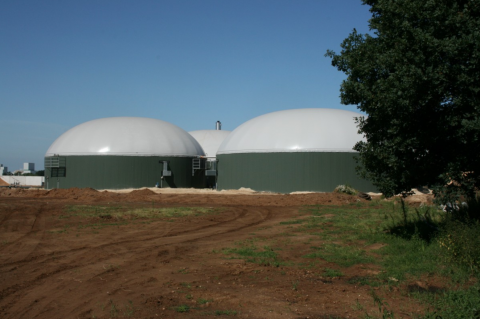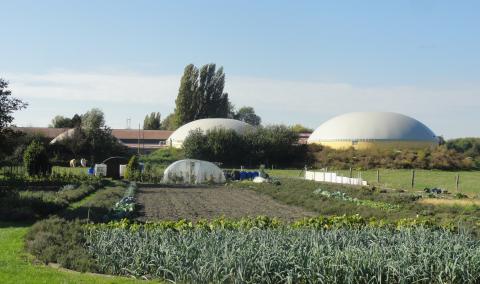
Methanization: what agronomic and environmental performances?
Methanization is developing in France and in other countries. It allows the production of renewable energy (biogas) and a digestate from the methanization process. This digestate, used as organic fertilizer, contributes to the closing of cycles and the maintenance of soil fertility. While various organic wastes can be methanized, the production of intermediate crops for energy purposes and/or dedicated crops is also developing.
The agronomic and environmental performance of cropping systems associated with anaerobic digestion is often evaluated with optimized systems. For example, the savings in fertilizer theoretically available are assumed to be made by farmers. Apart from the spreading of digestate and the insertion of intermediate crops for energy purposes, no other changes are generally considered. However, under actual deployment conditions, fertilizer savings may be lower for various reasons. The inclusion of energy crops or the production of dedicated crops for anaerobic digestion may also lead to more profound changes in cropping patterns, including grassland areas. These modifications could strongly modify the evaluation of their agronomic (food production, soil fertility, etc.) and environmental (GHG emissions, nitrate leaching, etc.) performances.
In this context, the objective of the project will be to characterize and understand the changes induced by methanization, as much on fertilization as on crop successions or the maintenance of grasslands. The method will consist firstly of a study of changes in crop rotation on farms involved in methanization throughout France, based on the graphic parcel register (RPG). Secondly, farm surveys will be carried out to explain the changes in crop rotation observed (or not) in the RPG, the fertilizer savings made and potential other changes.
The deliverables of the project will consist of a synthesis of the changes induced by methanization and their explanation, changes that can then be taken into account in the environmental assessment of methanization.
This project on 2022-2023 involves:
- 2 C-BASC laboratories and the Graduate School Biosphera of the university: Florent Levavasseur (ECOSYS, INRAE) as the carrier, Sabine Houot (ECOSYS, INRAE), Lucie Martin (ECOSYS, INRAE), Philippe Martin (SADAPT, AgroParisTech), Marco Carozzi (SADAPT, INRAE) and a PhD student
- 2 non-academic partners: Gaz Réseau Distribution France (GRDF) and the Association des méthaniseurs de France.
Methanization unit of a farm

